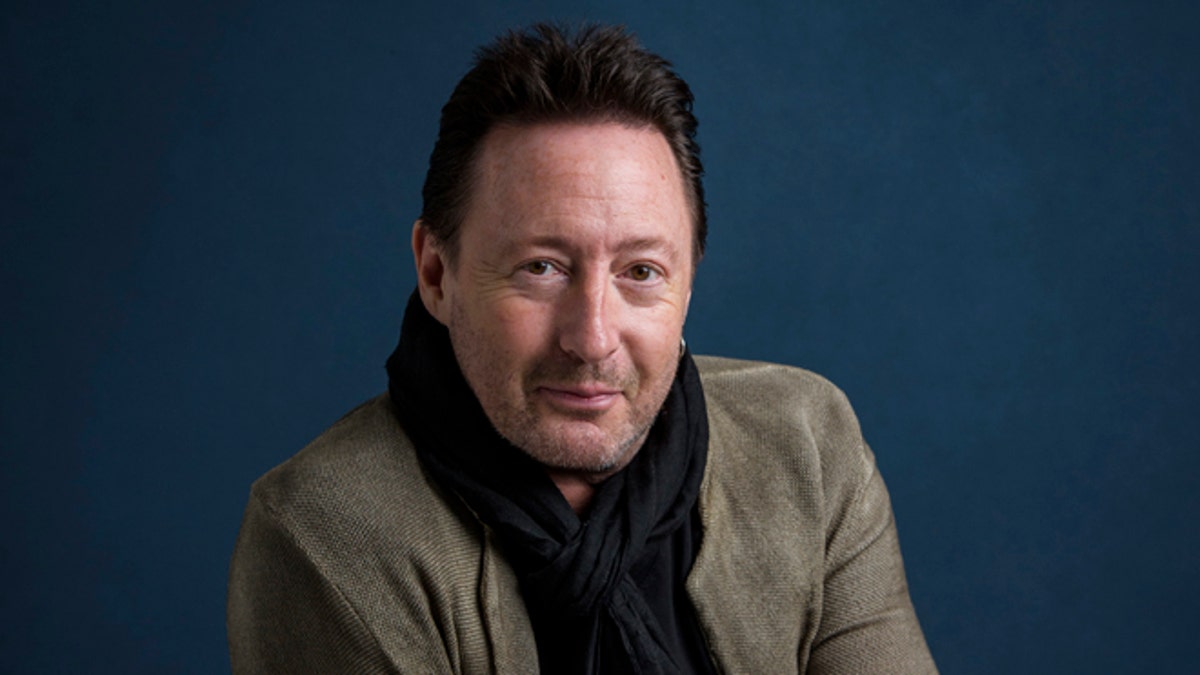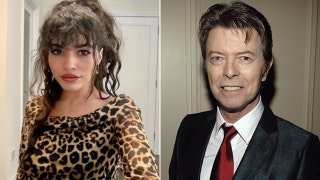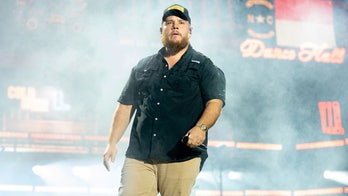
Julian Lennon has a children's book "Touch the Earth" coming out. (The Associated Press)
Julian Lennon is looking to nurture a new generation's commitment to the environment, with a little help from a white feather.
The firstborn son of the late John Lennon has co-authored "Touch the Earth," a picture book for kids as young as 3 about the world's water problems, from polluted oceans to the need for clean drinking water in the developing world.
Out later this month, the book from Sky Pony Press has a group of kids loaded into a plane called the White Feather Flier as they span the globe and learn about the need for filtration, irrigation and ocean life protection. With illustrations created both by hand and computer, it's the first of three children's books he plans, in line with the environmental and humanitarian work of his White Feather Foundation.
"We've failed miserably in looking after our environment. I think this is a great way to approach children into realizing what's at stake, and to help educate and help them make decisions about the right things to do for the future," Lennon said in a recent interview with The Associated Press. "It's for those with inquiring minds who are asking why?"
Lennon has taken on environmental issues in song, including his 1991 "Saltwater," and in film, including the 2006 documentary "Whaledreamers," covering a gathering of indigenous and tribal leaders that explores connections among whales, dolphins and humanity.
Appealing to the next generation of prospective eco-warriors grew out of his friendship with co-writer Bart Davis after the two put aside plans — for now — for the 54-year-old Lennon to write a biography. But he hasn't completely abandoned the idea.
"I feel time's marching on, you know. A lot of my friends and people I know are popping their clogs," Lennon laughed. "You know, who knows what's next. It's in the cards in the next few years, absolutely, before it's too late."
So what's up with the white feather for Lennon, the former Beatle's son with his first wife, Cynthia? He shares the story at the back of the book.
"On the odd occasion when I saw dad he mentioned once that should he ever pass, a way he would let me know that he was OK, or that we were all going to be OK, would be in the form of a white feather," Lennon explained. "I thought that quite peculiar. I told mum about it, too, and we just sort of went on with life."
Later, while on tour in Australia, he was presented with a white swan feather by an aboriginal tribal elder of the Mirning people.
"It was a freaky moment, but one I took to heart immediately," he said. "I realized that this was about stepping up to the plate now and, you know, I can sing all I want about this stuff but am I actually going to do something about it? So I spent 10 years making a documentary about the Mirning people."
It's also when he established his foundation, visiting Ethiopia with the head of a clean water initiative and touring schools and health clinics in Kenya. A portion of the books' proceeds will go the foundation, which now does a range of work, including providing scholarships for girls in Kenya.
Lennon's father was shot to death in 1980. His mother died two years ago of cancer at age 75. Her loss remains tender.
Lennon dedicates the book to Cynthia, and he established the Kenya scholarships in her name.
"I talk to her every night, pretty much," Lennon said. "She has given me the strength to carry on. Where I'm at at the moment, I feel very strong, very zenlike. I just want to do the right thing. To try to continue to be the best that I can be. That was all based around wanting to make her proud. I try to continue all the work that I do in her name."













































